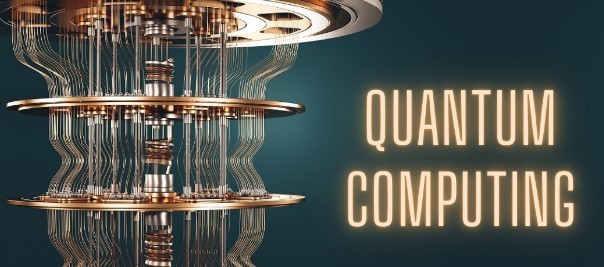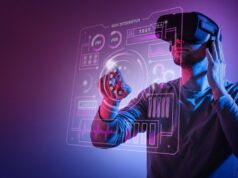The Power of Quantum Computing: Unlocking Unprecedented Processing Speeds
Introduction
In the dependably evolving scene of technology, one progress has captivated the imagination of researchers, researchers, and tech darlings the same: quantum computing. The chance of quantum computing keeps an eye on an essentially affect in setting in the domain of calculation, promising unprecedented processing speeds that could change how we manage mind boggling issues.
Understanding Quantum Computing
In a general sense, quantum computing is fanned out in the principles of quantum mechanics, leveraging them to lead assessments at speeds that far beat the limitations of old-style workstations. As a glaring separation to old-style bits, which are confined to existing in either a state of 0 or 1, quantum bits, or qubits, have the key ability to exist in a superposition of the two expresses meanwhile. This distinctive property grants quantum processors the capacity to meanwhile investigate an outstanding enormous number of possible results, subsequently determinedly enhancing their computational power. The extraordinary repercussions of this cutoff might actually outrage the field of computing, paving the way for unprecedented improvements in definitive thinking and information processing.
Quantum Hardware and Processors
Quantum processors, the foundation of quantum computing, vary fundamentally from their old style partners. Traditional processors depend on electrical circuits and semiconductors, manipulating bits through binary code. Conversely, quantum processors use qubits and influence the principles of superposition and entanglement for calculation.
Quantum hardware improvement has been a point of combination of research lately. Researchers and engineers are pushing the restrictions of materials science and quantum actual science to make stable qubits and strong quantum processors. The delicacy of quantum states addresses an immense test, as outside components can disturb the touchy quantum sufficiency. No matter what these troubles, breakthroughs in quantum hardware have been achieved, bringing us closer to the affirmation of judicious quantum computers.
Quantum Algorithms and Applications
One of the most intriguing bits of quantum computing is its capacity to deal with complex issues determinedly speedier than customary workstations. Quantum algorithms are intended to saddle the force of superposition and entanglement, enabling proficient reactions for issues that were actually seen as intractable.
Quantum parallelism, a vital element of quantum algorithms, permits quantum PCs to all the while investigating various arrangements. This makes the way for solving advancement issues, cryptography difficulties, and reenactments that would take traditional PCs an unreasonable measure of time.
Quantum computing applications length many fields, promising progressions in regions, for example, cryptography, drug revelation, environment modeling, and man-made reasoning. For instance, the capacity to recreate sub-atomic designs with high accuracy could reform drug disclosure processes, leading to the improvement of new prescriptions and treatments. Likewise, quantum PCs could break existing cryptographic codes, prompting the requirement for quantum-safe encryption strategies.
Quantum Supremacy and Breakthroughs
The idea of quantum supremacy alludes to the place where a quantum PC can play out an errand that is essentially unimaginable for the most remarkable traditional supercomputers. Achieving quantum supremacy denotes a huge achievement in the improvement of quantum computing, showcasing beating traditional PCs in unambiguous applications potential.
In 2019, Google professed to have accomplished quantum supremacy with its 53-qubit Sycamore processor, demonstrating the capacity to play out a complicated computation in merely minutes that would require the most advanced old-style supercomputers millennia. While the case started discussions and conversations among mainstream researchers, it highlighted the headway made in quantum computing research.
Quantum Information Processing and Advantages
At the point of union of quantum computing is quantum information processing, a discipline focused in on investigating the control and transmission of information through quantum structures. The ability to encode, process, and send information in quantum states presents a way to novel doorways in correspondence and estimation. This piece of quantum computing holds the most ideal way to manage to unlock unprecedented potential in the way information is regulated and utilized.
One of the imperative advantages of quantum computing is its actual limit with respect to quantum speedup. In certain computational undertakings, quantum algorithms can give emotional speedup appears differently in relation to their dated accomplices. This speedup holds the responsibility of tackling complex issues that were in advance past the scope of dated laptops, making quantum computing a problematic power in the domain of high-performance computing.
Superposition and Entanglement
One of the imperative advantages of quantum computing is its actual limit with respect to quantum speedup. In certain computational undertakings, quantum algorithms can give emotional speedup appeared differently in relation to their dated accomplices. This speedup holds the responsibility of tackling complex issues that were in advance past the scope of dated laptops, making quantum computing a problematic power in the domain of high-performance computing.
Entanglement, another quantum unconventionality, happens when qubits become thought about so the condition of one qubit is straightforwardly connected with the condition of another, paying little mind to the genuine distance between them. This interconnectedness draws in quantum PCs to perform highly related assessments proficiently, further enhancing their capacities to process.
The Future of Computing: Quantum Computing’s Role
As we plan ahead for computing, quantum technology stands apart as a groundbreaking power with the possibility to redefine the restrictions of what is computationally conceivable. Quantum computing isn’t intended to supplant old-style computing but instead to supplement it, addressing explicit issues with unmatched effectiveness.
The integration of quantum computing into existing computational infrastructure could prompt crossover frameworks that influence the qualities of both traditional and quantum processors. This cooperative energy could open new roads for research, innovation, and critical thinking across different industries.
Quantum Computing Research and Challenges
The field of quantum computing is still in its beginning stages, and colossal troubles remain en route to sensible execution. Quantum intelligence, the shortcoming of qubits to biological interference, is a steady test that researchers are really working to make due. Screw-up amendment in quantum estimations is another area of intense investigation, as the delicate thought of quantum states commits them to errors.
Besides, the improvement of versatile quantum hardware represents a huge obstacle. Creating stable qubits that can be scaled to deal with complex calculations remains a considerable undertaking. Researchers are exploring different actual executions, including superconducting circuits, caught particles, and topological qubits, each with its exceptional arrangement of advantages and difficulties.
Conclusion
All in all, quantum computing addresses a groundbreaking jump in computational power, with the possibility to open unprecedented processing speeds. The principles of quantum mechanics, saddled through quantum processors and algorithms, open new wildernesses in critical thinking, reproduction, and information examination. Quantum information processing, superposition, and entanglement are at the center of this groundbreaking technology, offering advantages that could alter industries and logical research.
While quantum supremacy has been shown in unambiguous errands, useful execution and far-reaching reception of quantum computing are still not too far off. The future of computing without a doubt involves the integration of quantum technology close by traditional computing, creating a half-and-half methodology that expands the qualities of the two ideal models.
As quantum computing research continues to extend the limits of what is conceivable, coordinated effort between the scholarly world, industry, and government parts becomes dire. Overcoming the difficulties of quantum ampleness, screw-up fix, and adaptable quantum hardware requires intentional undertakings and interdisciplinary joint effort.
The power of quantum computing to open unprecedented processing speeds isn’t just a cutting-edge thought; a significant opportunity could reshape the mechanical scene in the years to come. As researchers gain ground in quantum hardware, algorithms, and applications, the groundbreaking capacity of quantum computing ends up being increasingly self-evident, offering a short investigate a future where complex issues are handled at speeds as of late thought to be unimaginable.








